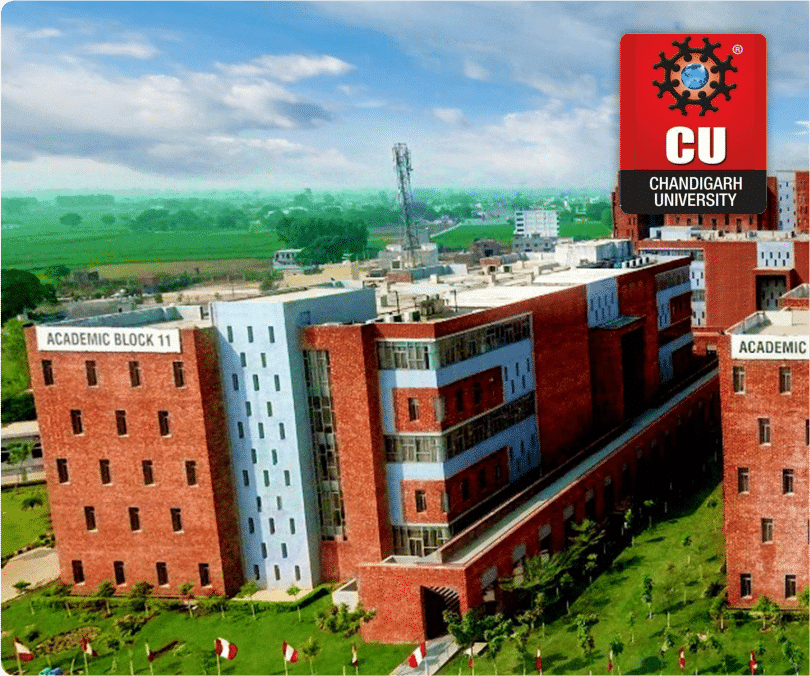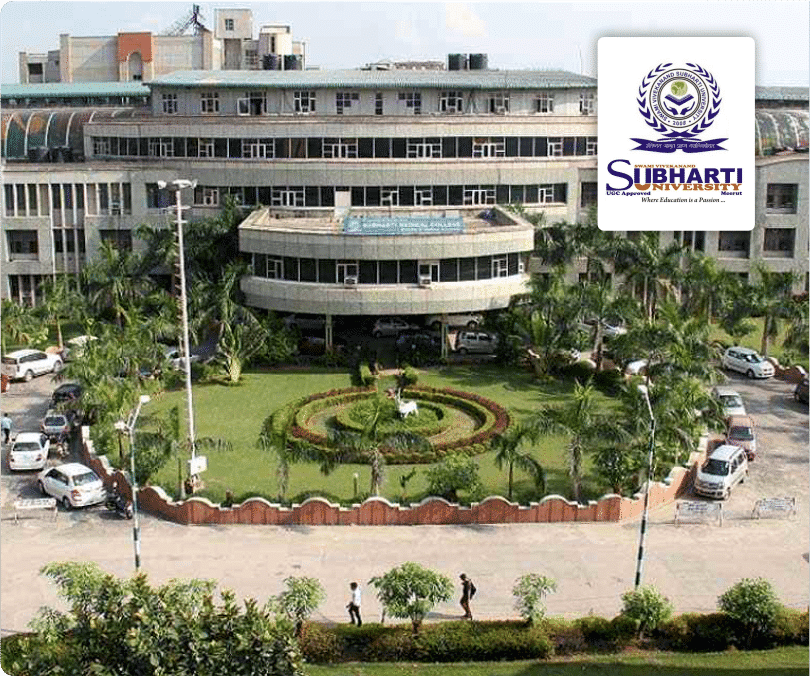
MBA Full Form Fees, Specialization and Admission Process 2026
Have you considered how an MBA could change your career? The Master of Business Administration (MBA) might be the key to your success. Whether you dream of advancing in your job, starting your own business, or simply gaining a better understanding of the business world, an MBA offers valuable skills and knowledge.
In this blog, we will explore about the MBA full form, fees, specializations, and the admission process in 2026.
Online/Distance MBA Universities In Other Cities
Understanding MBA An Overview
The MBA course started in the early 20th century in the United States as a response to the need for better ways to manage businesses. MBA full form is Master of Business Administration. The duration of this course is 2 years. The degree covers different areas of business, including accounting, finance, marketing, human resources (HR), and operations management, all aimed at building a strong foundation in business management principles.
In India, the MBA has become very popular over the years and is one of the most wanted postgraduate degrees. Indian business schools, including the well-known Indian Institutes of Management (IIMs), offer various MBA courses that cater to different student needs.
Here is an overview table for MBA course details:
| Aspect | Details |
|---|---|
| Program Name | MBA |
| MBA Full Form | Master of Business Administration |
| Duration | 2 years (full-time), 1-3 years (part-time/distance/online), 1 year (executive MBA) |
| Eligibility | Bachelor's degree in any field; entrance exam scores (e.g., CAT, GMAT, XAT) may be required |
| Core Subjects | Finance, Marketing, Operations Management, Human Resources, Business Ethics, Strategy |
| Specializations | Marketing, Finance, Human Resource (HR), Operations Management, Entrepreneurship, IT Management |
| Learning Methods | Lectures, case studies, group projects, internships, practical workshops, online learning options |
| Career Opportunities | Management roles, consultants, entrepreneurs, analysts, marketing managers, finance managers |
| Average Salary Post-MBA | Varies by specialization; generally higher than pre-MBA salary (e.g., ₹6-12 LPA in India) |
| Admission Process | Application submission, entrance exams, personal interviews, and document verification |
| Top Institutions | Indian Institutes of Management (IIMs), Indian School of Business (ISB), XLRI, FMS, SPJIMR, NMIMS, Manipal University, Amity University, Jain University |
Types of MBA Degrees in India
Full-time Regular MBA: This management program is a popular choice for students who can study without working simultaneously. This MBA course duration is 2 years. It includes practical projects and internships to give students a real taste of the business world.
One Year Full-time MBA: This is a fast-track program for people who want to finish their MBA quickly. It’s intense and designed for people who already know what they want from their careers and wish to jump back into work soon.
Part-Time MBA: This program is for those who want to keep working while they study. It’s flexible, often taking more than two years to complete, and classes are usually held in the evenings or on weekends.
Executive MBA (EMBA): Aimed at people who already have a lot of work experience, this program focuses on making you a better leader and manager.
Distance Learning MBA: This course allowing you to study from anywhere. It uses digital tools to deliver classes and discussions. Distance MBA course is perfect for students who live far from campuses or have busy schedules that don’t allow for regular class attendance.
Online MBA: Like distance learning, this MBA course is fully online and focuses on interactive learning. Students can watch video lectures, join discussions, and complete assignments when it works best for them. This online course is great for people with busy schedules or those who like a flexible learning environment.
Top MBA Specializations in India
Choosing the right specialization can greatly affect your career path. The MBA Full Form is Master of Business Administration, and it includes different specializations that suit various job opportunities. Here are some of the top MBA specializations you might think about in 2026:
MBA in Information Technology: This course is great for those who love technology. It teaches you how to manage and improve IT systems. Jobs in this area include IT Manager, Chief Information Officer, and IT Consultant.
MBA in Finance: This course is always popular and focuses on managing money, investment, and financial planning. You could end up working as a Financial Analyst, Investment Banker, or Financial Manager.
MBA in Business Analytics: This course helps you understand big data and how to make smart business decisions. You might work as a Data Analyst, Business Analyst, or Operations Analyst.
MBA in Marketing: This course digs into understanding customer behavior, digital marketing, and managing brands. You could become a Marketing Manager, Brand Manager, or Digital Marketing Specialist.
MBA in Healthcare Management: This course prepares you for managing hospitals and healthcare services, helping make these organizations run better.
MBA in Human Resources: This area focuses on managing people at work, helping them stay motivated and grow professionally. Careers include HR Manager or Talent Acquisition Specialist.
MBA in International Business: This course prepares you for managing business on a global scale, dealing with international markets and strategies. It’s good for jobs in multinational management and global strategy.
MBA in Entrepreneurship: Perfect for those who want to start their own business or bring new ideas to existing businesses, leading to roles like Business Consultant or Venture Capital Analyst.
MBA Admission Process for 2026
The MBA Full Form is Master of Business Administration, which shows that this program is about building skills in business management and leadership. If you’re a student wanting to join an MBA program in 2026, there are several important steps you need to take. From exploring different colleges to getting ready for entrance exams and interviews, each step is important in the application process. Here’s a simple overview of the key steps to help you along the way.
Research Programs: Start by researching various MBA programs to find the ones that align with your career goals and interests.
Check Eligibility: Review the eligibility criteria for the MBA programs you are interested in, including academic qualifications and work experience requirements.
Prepare for MBA Entrance Exams: Register and prepare for required entrance exams, such as CAT, GMAT, or XAT, as most MBA programs in India require scores from these tests.
Gather Documents: Collect necessary documents, including 10th, 12th and graduation marksheets, id proof, address proof and passport size photo.
Submit Applications: Complete and submit applications to your chosen MBA courses before the deadlines.
Attend Interviews: If shortlisted, participate in the interview process, which may include personal interviews and group discussions to assess your suitability for the program.
Receive Admission Offers: Once the selection process is complete, you will receive admission offers. Evaluate them based on your preferences, and confirm your acceptance to the program of your choice.
Who Should Enroll in an MBA Program
The MBA Full Form denotes Master of Business Administration, indicating that this course is centered around business management and administration. While an MBA program can be a valuable choice for many individuals, it may not be the right fit for everyone. Here are some types of people who should think about enrolling in an MBA program:
Aspiring Leaders: People who want to take on leadership roles in their jobs can gain important skills and knowledge through an MBA, preparing them for management positions.
Career Changers: Those looking to switch fields or industries can use an MBA to learn what they need and build connections to make the transition easier.
Entrepreneurs: Future business owners can learn essential skills in managing a business, finance, and marketing, which are important for starting and running their own companies.
Recent Graduates: New graduates who want to improve their qualifications and increase job opportunities can consider pursuing an MBA to stand out in a competitive job market.
Mid-Career Professionals: Individuals with several years of work experience who want to move up in their careers or take on higher-level roles can benefit from the insights and skills provided by an MBA.
Networking Seekers: People who want to make connections and meet other professionals in their field can take advantage of the networking opportunities that come with an MBA program.
Skills Development Enthusiasts: Those eager to learn a variety of skills, including leadership, critical thinking, and planning, will find an MBA program helpful for their personal and professional growth.
How to Choose the Right Online MBA Program for Your Future
Choosing the right online MBA courses is very important for your career development. Here’s a full guide to help you make the right decision:
| Aspect | Details |
|---|---|
| Define Your Goals | Career Aspirations: Are you looking for a promotion, career switch, or entrepreneurial skills? Choose a program aligned with your objectives. Specialization: Identify the field of interest like Finance, Marketing, HR, or Analytics, and select programs offering strong courses in that area. |
| 2. Accreditation | Ensure that the MBA program is accredited by recognized bodies such as UGC and AICTE. Accreditation guarantees quality education and better recognition in the job market. |
| 3. Reputation and Rankings | Research about the course, university reputation, and its rankings. |
| 4. Curriculum and Flexibility | Curriculum: Check if the MBA course syllabus is up-to-date with industry trends. Programs offering electives and case studies can improve learning. Flexibility: Look for programs offering asynchronous learning, recorded lectures, or weekend classes, especially if you're working. |
| 5. Technology and Resources | Check if the program uses a modern learning management system (LMS) and offers additional resources like digital libraries, webinars, and discussion forums. |
Career Opportunities After MBA Degree Course
An MBA degree provides many job opportunities in different fields. With a solid understanding of business basics and leadership skills, graduates are ready to solve problems and help organizations succeed. Here are some of the best career options for MBA graduates, along with their salary ranges.:
| Role | Details | Salary Range |
|---|---|---|
| Management Consultant | They help organizations with their plans, structure, management, and operations. They look at business problems and come up with practical solutions to improve performance. | ₹6 to ₹25 lakhs per annum |
| Business Development Manager | Identifying business opportunities, building relationships, and driving sales growth. They also work closely with marketing teams to align strategies for market penetration. | ₹4 to ₹15 lakhs per annum |
| Financial Analyst | They look at financial data, create reports, and give advice on investment choices. They keep an eye on economic trends and evaluate financial performance to help make plans. | ₹4 to ₹12 lakhs per annum |
| Marketing Manager | They create marketing plans, manage campaigns, and study market trends. They work with different teams to make sure the messaging and brand identity are consistent. | ₹5 to ₹18 lakhs per annum |
| Operations Manager | They oversee production, manage processes, and make sure operations run smoothly. They use the best methods to make the most of resources and increase productivity. | ₹5 to ₹20 lakhs per annum |
| Human Resources Manager | Managing recruitment, training, employee relations, and organizational development. They also develop policies and programs that promote a positive workplace culture. | ₹4 to ₹15 lakhs per annum |
| Supply Chain Manager | They oversee and manage the supply chain process from getting materials to delivering products. They make sure goods and services move smoothly while keeping costs and risks low. | ₹6 to ₹18 lakhs per annum |
| Product Manager | They manage the creation and marketing of a product, from the idea stage to the launch. They work with different teams to make sure the product is delivered successfully and fits the market. | ₹8 to ₹20 lakhs per annum |
| Investment Banker | Assisting clients in raising capital and providing financial advisory services. They analyze financial markets and advise on mergers, acquisitions, and restructuring. | ₹8 to ₹25 lakhs per annum |
| Entrepreneur | Starting and managing your own business or startup. They drive innovation and are responsible for all aspects of business operations, from strategy to execution. | Highly variable, depending on business success; potential for unlimited income |
Final Thoughts
In the previous sections, you learned about the MBA Full Form, which stands for Master of Business Administration, along with important details about fees and specializations. An MBA can really change your career path, giving you many chances to grow. As the business world becomes more complicated, the problem-solving and leadership skills you learn in an MBA will be very helpful.
If you’re thinking about joining an MBA program in 2026, it’s a good idea to start looking at your options early to make sure they match your career goals. Now is the perfect time to get ready for your MBA journey. Explore different programs, understand what you need to a
Most Popular Blogs

Online BCA Courses in Jain University Online

Distance Education at Pondicherry University

Top 4 colleges to pursue Distance BBA in Andhra Pradesh

What are the top distance BSc colleges in Kerala

Know about the top 3 distance BCom universities in Madhya Pradesh



















